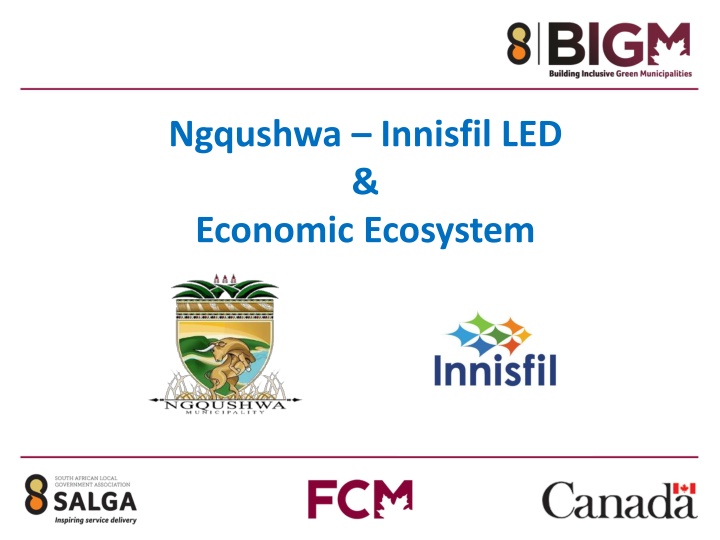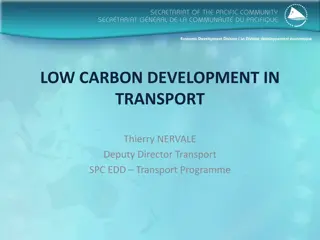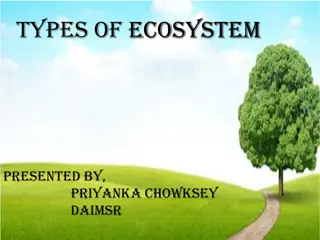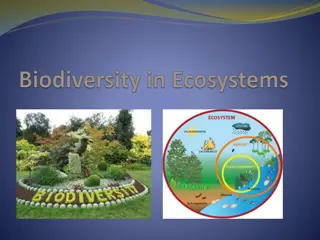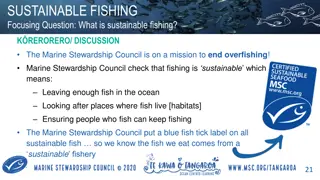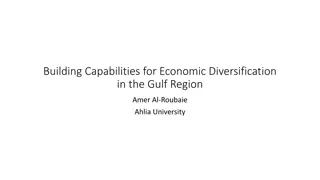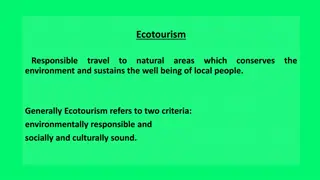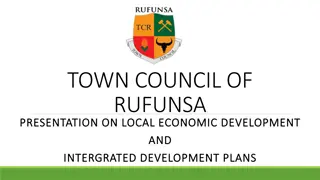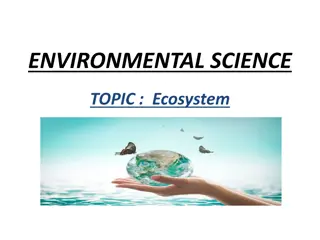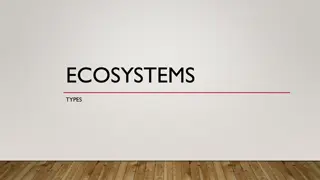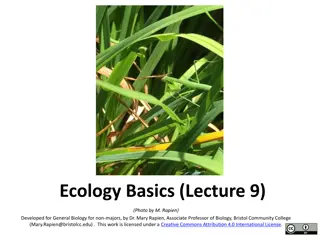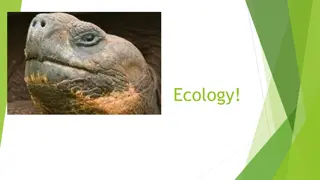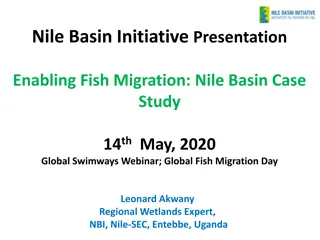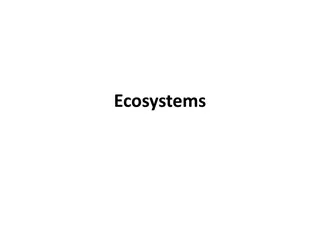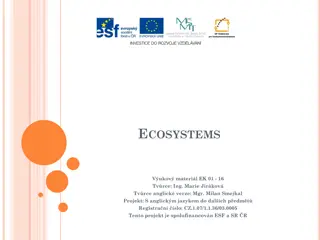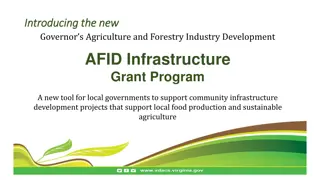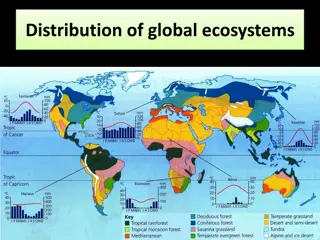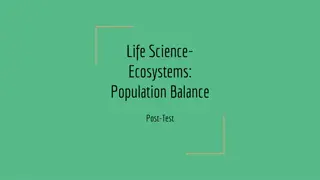Enhancing Local Economic Ecosystems for Sustainable Growth
Strategically defining and categorizing key players in local economic ecosystems can lead to more informed decision-making by public services, optimizing resource utilization, and maximizing community assets for impactful results. Ecosystem champions should possess a diverse skill set, including knowledge of the economy, stakeholder engagement, and industry expertise. Promoting innovative ecosystems in municipalities involves mapping out ecosystems, categorizing stakeholders and assets, and leveraging resources such as transportation infrastructure, geography, and climate for development.
Download Presentation

Please find below an Image/Link to download the presentation.
The content on the website is provided AS IS for your information and personal use only. It may not be sold, licensed, or shared on other websites without obtaining consent from the author.If you encounter any issues during the download, it is possible that the publisher has removed the file from their server.
You are allowed to download the files provided on this website for personal or commercial use, subject to the condition that they are used lawfully. All files are the property of their respective owners.
The content on the website is provided AS IS for your information and personal use only. It may not be sold, licensed, or shared on other websites without obtaining consent from the author.
E N D
Presentation Transcript
Ngqushwa Innisfil LED & Economic Ecosystem
HOW CAN THE ECOSYSTEM APPROACH DRIVE GROWTH AND IMPROVE PUBLIC SERVICES? Defining a local economic ecosystem strategically identifies key drivers of the local economy Categorizing key players/stakeholders in the ecosystem is foundational to the work of local economic development By being clear on the ecosystem, sectors and stakeholders public service can make more informed decisions Use limited resources in the most effective & efficient way possible Increase the likelihood of success and level of impact by focusing on a community s assets (capital and human) for the greatest impact and results
ECOSYSTEM CHAMPION: WHAT SKILLS SHOULD S/HE HAVE? Knowledge of the local economy Knowledge of the broader regional, national, and global economy including trends, areas of strength, change and growth Research, categorization and logging (capturing data) of ecosystem stakeholders Industry knowledge they should be familiar with the ecosystem, industries, and sectors tourism, agriculture, manufacturing, etc Communications (ability to reach out, contact and connect with stakeholders) and networking skills ( meet with, relate to, understand their business and to bring stakeholders together, in meetings on vision, on projects ( honey production facilities, etc )
HOW DO WE PROMOTE INNOVATIVE ECOSYSTEMS IN MUNICIPALITIES? Map out the ecosystem Identify one or more ecosystems Categorize the stakeholders and assets Stakeholders include but are not limited to: People, skills, talent Businesses, suppliers, producers of goods & services Government agencies (their skilled and talented people), programs, funds
HOW DO WE PROMOTE INNOVATIVE ECOSYSTEMS IN MUNICIPALITIES? ctnd Assets include but are not limited to: Transportation, rail, roads, public transit, etc Infrastructure water/waste water, electricity, etc Geography (oceans, beaches, agricultural land, cities, towns) Climate (for growing crops, tourism, etc..) Location for distribution, labour & talent retention and attraction
HOW DO WE PROMOTE INNOVATIVE ECOSYSTEMS IN MUNICIPALITIES? ctnd Organize the assets to make sense / make / define an ecosystem. i.e. agriculture is a large ecosystem honey is a smaller ecosystem more manageable to identify, network with, focus on and grow Bringing stakeholder together Come up with a collective vision / plan Build an honey ecosystem / cluster / sector Collaborate / cooperate
HOW CAN WE CREATE COLLABORATION AND FOSTER GROWTH OF ENTREPRENEURIAL ECOSYSTEMS? In summary leading / facilitating an entrepreneurial ecosystem is all about collaboration Success becomes easier / less friction when like minded or aligned interests come together This is when collaboration is most natural and beneficial. There is a need, want and desire It s when competitors see themselves as parts of a bigger picture / industry / sector and understand that collaboration will take them further. If you want to go fast go alone, if you want to go further go together Collaborate or Die I ve seen collaboration / coopetition in several ecosystems. Maple Syrup (not unlike honey), tourism, culture, wine, & culinary becomes bigger Gastronomy Honey is a great example citrus, pineapple.
